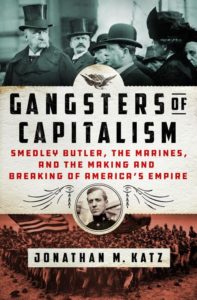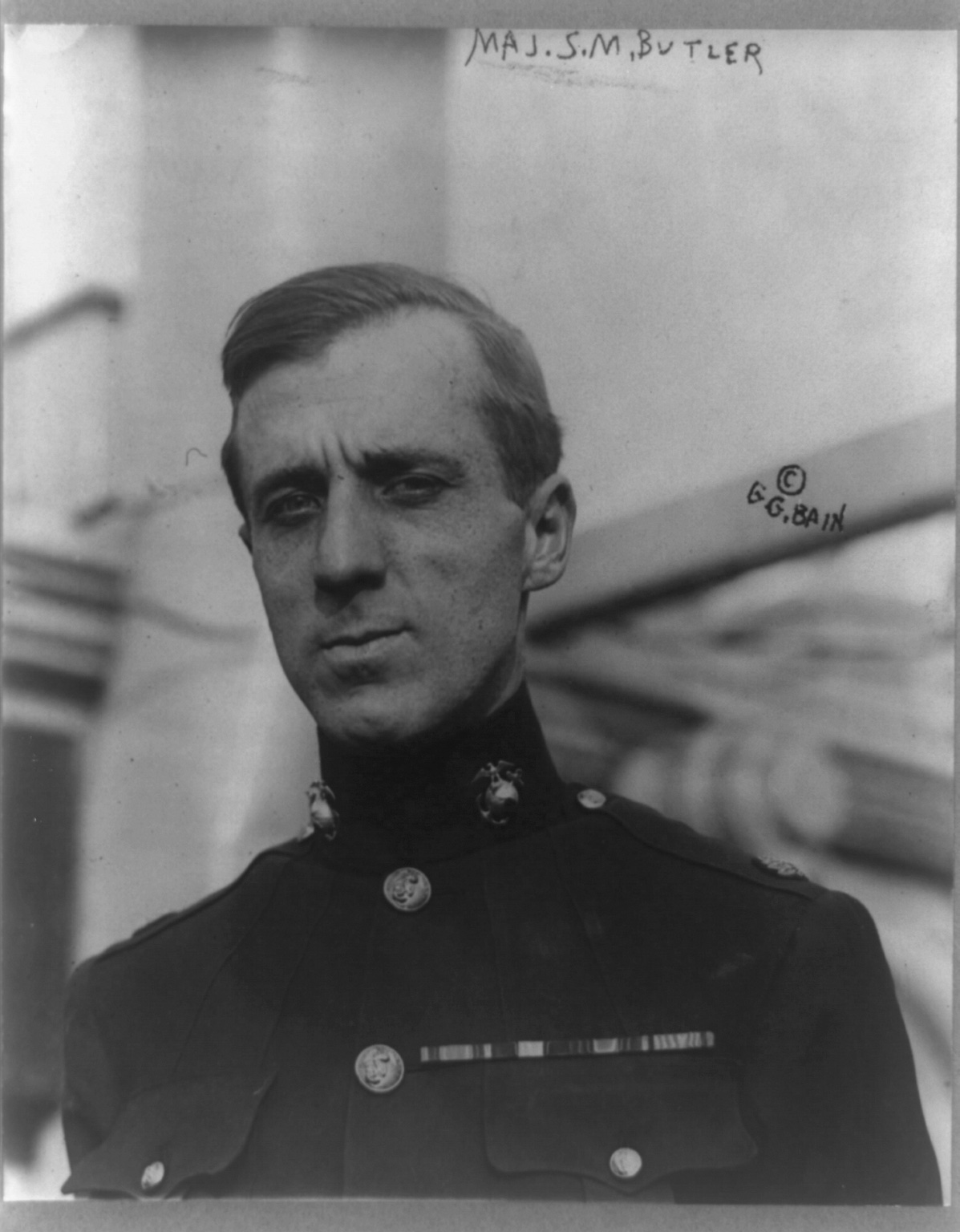War is a racket, they say. Then by extension, what about capitalism?

In his latest work, Gangsters of Capitalism, journalist Jonathan M. Katz delves deep into the life of America’s Maverick Marine, Smedley Butler, who spent more than three decades in armed service for his country, and who Katz identifies as the embodiment of the first four decades of American imperialism.
At the time of his death in 1940, Butler was the most decorated Marine in U.S. history, and one of just two Marines to garner Medals of Honor for two separate acts of outstanding heroism. The breadth of his career was unrivaled, serving in the Spanish–American War; Philippine–American War; the Boxer Rebellion; Banana Wars; the Honduran revolt; Nicaragua; Veracruz; Haiti; and World War I.
Try saying that five times fast, let alone living it.
“He turned up everywhere in the first imperialist decades of the 20th Century, alongside future presidents and movie stars; rebels, dissidents, and other legendary Marines,” Katz said in a news release.
Which made it all the more confounding for some when, upon after? his retirement in 1931, Butler wrote a short book with a profound impact.
War Is a Racket “grew out of a series of speeches before churches and pacifist groups all across the nation,” according to author Alan Green. In it, “Butler passionately criticized U.S. war efforts as both imperialistic and designed to enrich well-heeled profiteers who never shouldered a rifle.”
War, Butler wrote, is the only enterprise “in which the profits are reckoned in dollars and the losses in lives.”
Katz’s Gangsters of Capitalism documents the toll of U.S. interference around the globe through the eyes of the one man who was there and lived to tell the tale—or lived to caution against intervention.
Born into a Pennsylvania Quaker family in 1881, Butler spent most of his life eschewing the tenets of his childhood, and before his 17th birthday, he had dropped out of school and joined the Marine Corps. Yet after decades of being an armed instrument for the burgeoning American empire, Butler did an about face—with War Is a Racket becoming a canon in later years for isolationists and pacifists.
Three years after his retirement and publishing success, Butler was again in the media spotlight.
And again, his accusations were startling.
On November 24, 1934, the New York Post headline read, “GEN. BUTLER ACCUSES N.Y. BROKERS OF PLOTTING DICTATORSHIP IN U.S.”
Testifying before a two-man panel of the Special House Committee of Un-American Activities, Butler claimed that a cadre of business leaders were scheming to overthrow President Franklin D. Roosevelt, whose New Deal social programs were anathema to many of America’s elite.
In what was later dubbed the Business Plot, the committee essentially believed Butler’s testimony, but, according to Katz, took no action against the alleged plotters. To this day, the affair remains controversial, an odd postscript to the general’s illustrious career.
Gangsters of Capitalism brilliantly weaves together the life of one of America’s most decorated Marines as the perfect backdrop to the double-edged sword that is American exceptionalism. While the use of a first-person narrative throughout the book can be jarring for some history buffs, Katz more than makes up for it in a captivating tale of how American greed—for money, for power, for both—can have dangerous consequences at home and abroad.





